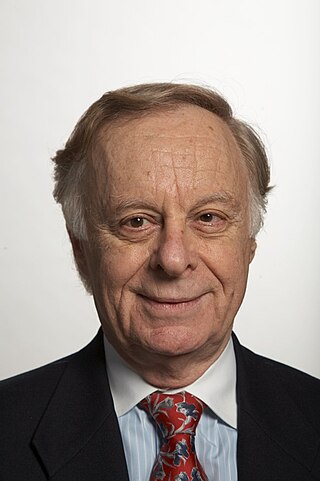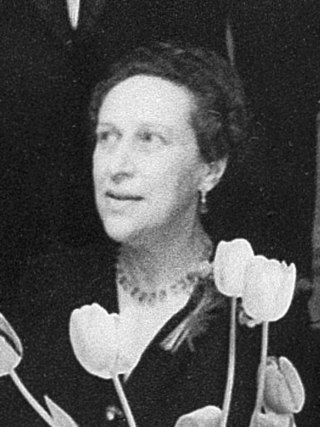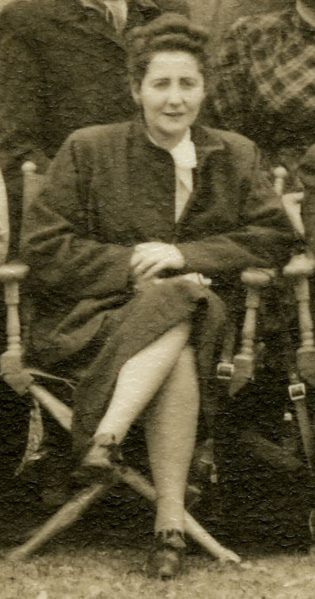Psychoanalysis is a theory developed by Sigmund Freud. It describes the human mind as an apparatus that emerged along the path of evolution and consists mainly of three functionally interlocking instances: a set of innate needs, a consciousness to satisfy them by ruling the muscular apparatus, and a memory for storing experiences that arises during this. Furthermore the theory includes insights into the effects of traumatic education and a technique for bringing repressed content back into the consciousness, in particular the diagnostic interpretation of dreams. Overall, psychoanalysis is a method for the treatment of mental disorders.
The British Psychoanalytical Society was founded by Ernest Jones as the London Psychoanalytical Society on 30 October 1913. It is one of two organisations in Britain training psychoanalysts, the other being the British Psychoanalytic Association.
The International Psychoanalytical Association (IPA) is an association including 12,000 psychoanalysts as members and works with 70 constituent organizations. It was founded in 1910 by Sigmund Freud, from an idea proposed by Sándor Ferenczi.

Abraham Arden Brill was an Austrian Empire-born psychiatrist who spent almost his entire adult life in the United States. He was the first psychoanalyst to practice in the United States and the first translator of Sigmund Freud into English.

Joseph Cheesman Thompson (1874–1943) was a career medical officer in the United States Navy who attained the rank of commander before retirement in 1929. His foes called him "Crazy Thompson", but to friends he was known as "Snake", a nickname derived from his expertise in the field of herpetology.
Oskar Pfister was a Swiss Lutheran minister and lay psychoanalyst who was a native of Wiedikon.
Robert S. Wallerstein was a prominent German-born American psychoanalyst. He headed the Psychotherapy Research Project of the Menninger Foundation and was president of the International Psychoanalytical Association.
The Boston Psychoanalytic Society and Institute (BPSI) is a psychoanalytic research, training, education facility that is affiliated with the American Psychoanalytic Association and the International Psychoanalytic Association. There were no psychoanalytic societies devoted to Sigmund Freud in Boston prior to his visit to Worcester, Massachusetts in 1909, though after 1909 there were individuals interested in Freud's writings, including James Jackson Putnam, L. Eugene Emerson, Isador Coriat, William Healy, and Augusta Bronner.
A lay analysis is a psychoanalysis performed by someone who is not a physician; that person was designated a lay analyst.
A training analysis is a psychoanalysis undergone by a candidate as a part of her/his training to be a psychoanalyst; the (senior) psychoanalyst who performs such an analysis is called a training analyst.

Henry Zvi Lothane is a Polish-born American psychiatrist, psychoanalyst, educator and author. Lothane is currently Clinical Professor at Icahn School of Medicine at Mount Sinai, New York City, specializing in the area of psychotherapy. He is the author of some eighty scholarly articles and reviews on various topics in psychiatry, psychoanalysis and the history of psychotherapy, as well as the author of a book on the famous Schreber case, entitled In Defense of Schreber: Soul Murder and Psychiatry. In Defense of Schreber examines the life and work of Daniel Paul Schreber against the background of 19th and early 20th century psychiatry and psychoanalysis.

Paula Heimann was a German psychiatrist and psychoanalyst, who established the phenomenon of countertransference as an important tool of psychoanalytic treatment.
Frances Deri was an Austrian psychoanalyst who moved to the States on the eve of World War Two, and practised in California where she died in February 1971.
Thomas Ogden is an American psychoanalyst and writer, of both psychoanalytic and fiction books, who lives and works in San Francisco, California.
The New Center for Psychoanalysis is a psychoanalytic research, training, and educational organization that is affiliated with the American Psychoanalytic Association and the International Psychoanalytic Association.
Psychoanalytic institutes and societies in the United States are often linked together, though a distinction may be made between the functions of the institutes and the societies. Some local psychoanalytic organizations have both words in their title while others have only one or the other.
The Psychoanalytic Center of California (PCC) is a psychoanalytic institute in Los Angeles, California, that emphasizes psychoanalytic approaches based on the work of Melanie Klein, Wilfred Bion, the British Object Relations School, and other theorists in the Kleinian traditions. It is affiliated with the International Psychoanalytic Association and has been recognized as a component society since 1993.
The Greater Kansas City and Topeka Psychoanalytic Center and Institute, also known as the Greater Kansas City Psychoanalytic Center and Institute (GKCPI), is a psychoanalytic center in Kansas City, Missouri, that comprises several interrelated organizations. Currently these are the Kansas City Psychoanalytic Foundation, the Greater Kansas City and Topeka Psychoanalytic Center (GKCTPC), and the Greater Kansas City Psychoanalytic Institute (GKCPI), also known as the Foundation, the center, and the institute. In the early 2000s, the Greater Kansas City Psychoanalytic Institute merged with the older Topeka Psychoanalytic Society.
Ruth Selke Eissler was a Jewish–American physician and psychoanalyst. She is sometimes known as Ruth Eissler-Selke.

Elisabeth Rozetta Geleerd Loewenstein was a Dutch-American psychoanalyst. Born to an upper-middle-class family in Rotterdam, Geleerd studied psychoanalysis in Vienna, then London, under Anna Freud. Building a career in the United States, she became one of the nation's major practitioners in child and adolescent psychoanalysis throughout the mid-20th century. Geleerd specialized in the psychoanalysis of psychosis, including schizophrenia, and was an influential writer on psychoanalysis in childhood schizophrenia. She was one of the first writers to consider the concept of borderline personality disorder in childhood.





